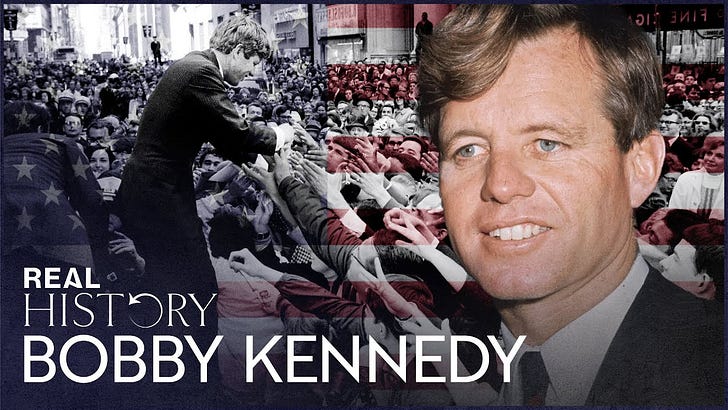One of the great “what ifs” of the 1960s was what would have happened if Robert Kennedy were not assassinated on June 5, 1968, as he won the California and South Dakota primaries. Would he have gone on to win the Democratic nomination, beat Richard Nixon in 1968, and become a great president?
The conventional wisdom seems to be YES. More people remember…
Keep reading with a 7-day free trial
Subscribe to Slender Threads / Global Citizens / Public History to keep reading this post and get 7 days of free access to the full post archives.




